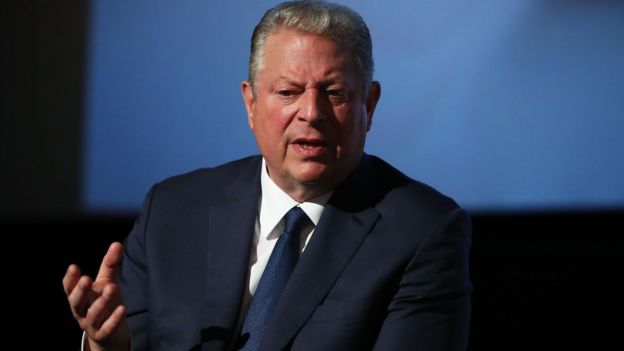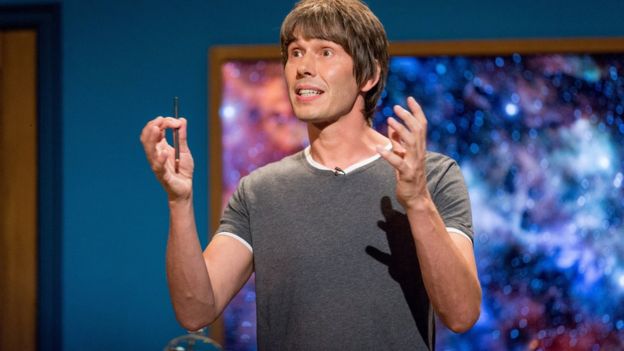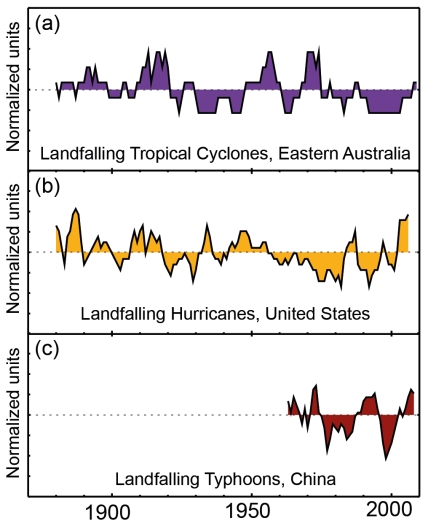BBC Defends Lord Lawson Climate Change Interview
In this newsletter:
1) Met Office Accused Of Misleading BBC Audience Over Extreme Weather Claims
Paul Matthews, Climate Scepticism, 11 August 2017
The BBC asked Peter Stott (Met Office) about extreme events, and specifically storms, but Stott responded by talking about heat waves. What we see here is another example of the self-destructive ‘circling the wagons’ policy. The sceptic has to be attacked, and the warmist defended, even when the IPCC report supports the sceptic.
Yesterday, Nigel Lawson was allowed onto the Today programme in response to an earlier interview with Al Gore promoting his new alarmist film. The audio is here, Gore at about 1:09:00, Lawson at 2:33:30. Gore had made the false claim that “The second big change is that the climate-related extreme weather events have grown far more numerous and far more destructive”, and Lawson corrected him on that, pointing out what the IPCC says about extreme events. He also corrected Gore’s bogus claims about fossil fuel subsidies, saying that fossil fuels are taxed, not subsidised. He also said that “during this past 10 years if anything mean global temperature has slightly declined,” which is not correct according the most commonly used indices (Lawson’s comment probably came from this graph of the global 2m temperature anomaly).
Needless to say, the usual suspects like Brian Cox and Jim Al-Khalili howled with indignation that Lawson was permitted to speak. Carbon Brief carried out a ‘fact check’, which I have fact-checked in their comments section. As far as I am aware, no climate scientist has yet spoken out about Gore’s false claim of “far more numerous” extreme events.
Even though yesterday’s programme featured one sceptic and two climate activists (alarmist film-maker Fisher Stevens was also interviewed), the BBC felt the need to balance this with two more climate activists this morning, their own Roger Harrabin and Peter Stott from the Met Office. Carbon Brief have put up the recording.
Harrabin tried to defend Gore’s claim about subsidies, but had to admit that as far as the UK is concerned, Lawson was correct, we don’t subsidise fossil fuels, we tax them, and most subsidies go to renewables.
Peter Stott’s interview was quite shocking. John Humphrys asked him about extreme events, and specifically storms, but Stott responded by talking about heat waves. I was reminded of the interview where Theresa May was asked about Health Service funding and gave an answer about the economy. Is Peter Stott a scientist, or a politician? I think this interview answered that question.
Here is a transcript of that section:
JH: Dramatic weather events, are we seeing more of them, more great storms, because of climate change specifically?
PS: We are indeed seeing more extreme weather as a result of climate change. In fact there was a big report came out only yesterday, compiled by over 450 scientists from more than 60 countries, and they looked at the latest data, and we know that 2016 was the warmest year on record, over a degree warmer than late 19th century levels, so this claim that we heard from Nigel Lawson that it’s been cooling is simply not true, and the other claim that was not true was to say that the IPCC had not found evidence for changes in extreme weather, well, we can look at what they found, and they state very clearly that we have seen changes in many extreme weather and climate events, since the late 1950s.
JH Such as?
PS: Well, for example if you look at heat waves, we did an analysis at the Met Office and looked at the UK actually, looked at temperature records, and you see that there’s been about ten times as many hot weather records as there have been cold weather records.
So here is a reminder of what the IPCC does say about storms, (see section 2.6.3 of the latest IPCC report) which might have provided Radio 4 listeners with a more honest answer to John Humphys’ question than the one Peter Stott gave:
Current data sets indicate no significant observed trends in global tropical cyclone frequency over the past century and it remains uncertain whether any reported long-term increases in tropical cyclone frequency are robust, after accounting for past changes in observing capabilities.
No robust trends in annual numbers of tropical storms, hurricanes and major hurricanes counts have been identified over the past 100 years in the North Atlantic basin.
In summary, this assessment does not revise the SREX conclusion of low confidence that any reported long-term (centennial) increases in tropical cyclone activity are robust, after accounting for past changes in observing capabilities.
And here is the relevant figure, fig 2.34:
As well as storms, Lawson was correct with regard to floods, where the IPCC says
In summary, there continues to be a lack of evidence and thus low confidence regarding the sign of trend in the magnitude and/or frequency of floods on a global scale.
Again, Peter Stott failed to mention this in his interview. You only have to watch the trailer for Al Gore’s film to see that the extreme weather he is talking about is things like floods and storms. Stott’s comments about heat records are tautologies: since the world has warmed over the last century, it’s hardly surprising that there are more hot records than cold records.
Full story
Met Office Tiptoing Round The Truth
Andrew Montford
Met Office can’t bear to give facts on hurricanes
It’s normal when somebody like Nigel Lawson appears on the BBC, for the corporation to follow up by giving somebody from the green side of the equation a chance for an unchallenged response. I think this is something to do with the unique way it’s funded.
Today was no exception, with yesterday’s exchanges between Lawson and Al Gore being given a going over by Roger Harrabin and Peter Stott from the Met Office.
Harrabin had been tasked with looking at the claims about the relative levels of subsidy for fossil fuels and renewables, and this was not too bad. Harrabin noted that Lawson was correct in saying that renewables were much more heavily subsidised than fossil fuels in the UK, while saying that Gore’s position that things were the other way round on a global level was also true. There was one amusing bit of Harrabin logic when he said that expenditure on energy saving had countered costs of renewables and therefore the UK was in the middle of the league table of European energy prices. A bit of a non sequitur there, I think.
Harrabin had been tasked with looking at the claims about the relative levels of subsidy for fossil fuels and renewables, and this was not too bad. Harrabin noted that Lawson was correct in saying that renewables were much more heavily subsidised than fossil fuels in the UK, while saying that Gore’s position that things were the other way round on a global level was also true. There was one amusing bit of Harrabin logic when he said that expenditure on energy saving had countered costs of renewables and therefore the UK was in the middle of the league table of European energy prices. A bit of a non sequitur there, I think.
Stott was much less satisfactory. In fact it left a rather unpleasant taste in the mouth.
John Humphrys opened with a good clear question: “So have we seen an increase in great storms?”, to which Stott responded with a very slick demonstration of how you get ahead in the civil service: don’t give clear answers to clear questions. He said that we were indeed seeing “more extreme weather”, and claimed that the IPCC report refuted Lawson’s claim that there had been no changes in extreme weather and that they were quite clear that we had seen “changes” in many weather extremes.
This was an (ahem) interesting approach, because Lawson was actually very clear that extreme weather changes all the time:
John Humphrys opened with a good clear question: “So have we seen an increase in great storms?”, to which Stott responded with a very slick demonstration of how you get ahead in the civil service: don’t give clear answers to clear questions. He said that we were indeed seeing “more extreme weather”, and claimed that the IPCC report refuted Lawson’s claim that there had been no changes in extreme weather and that they were quite clear that we had seen “changes” in many weather extremes.
This was an (ahem) interesting approach, because Lawson was actually very clear that extreme weather changes all the time:
Extreme weather events have always happened. They come and go. And some kinds of extreme weather events of a particular time increase, whereas others, like tropical storms, diminish.
When Humphrys pressed Stott on which climate events the IPCC said had increased, Stott again seemed to struggle to give a straight answer, responding with an answer about a Met Office study of heatwaves. This was no doubt because it gave a stronger message than the IPCC’s “medium confidence” that there has been an increase. He also said that we were seeing an effect on heavy rainfall events, which again is not really the impression that you get from the IPCC, which make the curious statement that there are “Likely more land areas with increases than decreases”.
Still we learned nothing about the “great storms” that Humphrys had opened with, and which is most people’s idea of what extreme weather looks like. These have unquestionably diminished, just as Lawson said.
But Stott said nothing of this. One could only be left with an abiding impression that he was damned if he was going to let the truth pass his lips.
3) BBC Defends Lord Lawson Climate Change Interview
BBC News, 10 August 2017
BBC Radio 4’s Today programme has defended its decision to interview Lord Lawson in a segment on climate change. “The BBC’s role is to hear different views so listeners are informed about all sides of debate and we are required to ensure controversial subjects are treated with due impartiality.”
3) BBC Defends Lord Lawson Climate Change Interview
BBC News, 10 August 2017
BBC Radio 4’s Today programme has defended its decision to interview Lord Lawson in a segment on climate change. “The BBC’s role is to hear different views so listeners are informed about all sides of debate and we are required to ensure controversial subjects are treated with due impartiality.”
The former Conservative chancellor said average global temperatures had declined over the past decade.
The Green Party said Lord Lawson had made “false claims” and prominent scientists including Professor Brian Cox criticised the interview.
But the BBC insisted it had a duty to inform listeners about all sides of a debate.
Lord Lawson, who was energy secretary in Margaret Thatcher’s government before becoming chancellor, is a critic of government policies on renewable energy.
He now chairs the Global Warming Policy Foundation, a think tank which describes itself as “open-minded on the contested science of global warming”.
He told Today that energy costs in the UK were high “because of our absurd, climate-driven energy policy”.
“We tax fossil fuel energy, we subsidise renewable energy,” he said, adding: “Conventional energy is more reliable and cheaper.”
Global temperatures
Lord Lawson also said that “official figures” showed that “during this past 10 years, if anything… average world temperature has slightly declined”.
According to Nasa figures, 2016 was the warmest year in a record that dates back to 1880.
Data from the UK Met Office Hadley Centre suggests there has been a slight cooling of surface temperatures since 2003, although there is some dispute over whether this gives the full picture.
Lord Lawson’s comments followed an interview with former US Vice-President Al Gore, who was promoting the sequel to his hit documentary An Inconvenient Truth, which made the case for climate change caused by the burning of fossil fuels such as coal and oil.

On the programme, Mr Gore made the economic case for renewable energy and said that “climate-related extreme weather events have grown far more numerous and far more destructive” in the 10 years since the first film.
It was suggested to the former Democratic presidential contender that he was going further than the scientific consensus but he said scientists around the world were “virtually unanimous on this and have been for decades”, adding that “record downpours” in the UK were a result of climate change.
Lord Lawson was asked why he thought Mr Gore was, in his words, “talking complete nonsense”.
The former cabinet minister said that “all the experts say there hasn’t been” an increase in extreme weather events, citing the Intergovernmental Panel on Climate Change (IPCC).
An IPCC working group has said: “Climate change may increase the risk of river and coastal flooding.”
Of Mr Gore, he said: “He’s like the man who goes around saying ‘the end of the world is nigh’ on a big placard.
“To begin with you might be a little bit scared but after 10 years of him doing that and the end of the world isn’t nigh then you think, well, maybe we should forget that and concentrate on real problems.”
‘Demonstrably untrue’
In a letter to Today programme editor Sarah Sands, Green Party co-leader Jonathan Bartley wrote: “I was disappointed to hear the BBC give airtime to Lord Lawson during an important debate on climate change and the UK energy system.
“He made a number of points which were demonstrably untrue.”
Mr Bartley said the former chancellor had also “claimed that the UK does not subsidise fossil fuels, and implied that green energy companies receive more subsidies than fossil fuels”.
He claimed fossil fuel companies “have received £6.9bn for work overseas since 2000, while green energy companies have only received £39m since 2012 (when such subsidies began)”.
Mr Bartley also accused the programme of failing to challenge Lord Lawson’s claims. “It is false balance, and risks grossly misleading the public,” he added.

Physicist and BBC presenter Professor Brian Cox was among those who responded angrily to the interview on Twitter, saying it was “irresponsible and highly misleading to give the impression that there is a meaningful debate about the science”.
Fellow physicist and broadcaster Jim al-Khalili tweeted: “For @BBCr4today to bring on Lord Lawson ‘in the name of balance’ on climate change is both ignorant and irresponsible. Shame on you.”
He added: “There should be NO debate any more about climate change. We (the world minus Trump/Lawson et al) have moved on.”
In a statement, the BBC said: “The BBC’s role is to hear different views so listeners are informed about all sides of debate and we are required to ensure controversial subjects are treated with due impartiality.
“This split segment started with an interview with Al Gore, at 0710 and at twice the length of Lord Lawson’s interview, and concluded with Fisher Stevens responding after Lawson, who as chairman of the Global Warming Policy Foundation had set out their position on the economics of subsidising green energy.
“It was introduced by our environment analyst who will be examining some of the claims further on tomorrow’s programme.”
Full story
4) "The World Is Presently In An Era Of Unusually Low Weather Disasters"
At Twitter hurricane expert Philip Klotzbach recently tweeted a couple of charts which are certainly worthy of mentioning again.

The first one helps to tell us why some people may think Atlantic hurricanes have become more frequent. Today the detection and monitoring technology allows constant, 100% coverage, and so every single storm gets picked up.
Years ago a storm lasting less than two days probably did not get acknowledged and thus went unnamed before disappearing completely. Today, as the chart shows, many short-lived disturbances get a name and thus forever have a place in the 2named storm” statistic.
Gore’s hurricane hype is all fraud
Next there are all the claims of rapidly increasing damage from hurricanes, like Al Gore often hypes up. Of course as population and property grow along coastal area, the net dollar amount in damages indeed grows. But when the damage gets normalized, the trend looks very different, as shown by the following chart:

Above we see no increase total economic damage. Things are not getting worse as con-man Mr. Gore likes to claim.
Next Climate Depot here brings us another chart from Prof. Roger Peilke Jr of the University of Colorado in Boulder. It shows global weather-related disaster losses as a proportion of GDP:


Well, look at that! The chart above clearly tells us losses as a percent of GDP have halved over the past 27 years! Not something you’d expect after listening to the end-of-world rantings of Al Gore and the climate alarmist media.
According to Professor Pielke Jr.
The world is presently in an era of unusually low weather disasters. This holds for the weather phenomena that have historically caused the most damage: tropical cyclones, floods, tornadoes and drought. Given how weather events have become politicized in debates over climate change, some find this hard to believe…The US has seen a decrease of about 20% in both hurricane frequency and intensity at landfall since 1900…Data on floods, drought and tornadoes are similar in that they show little to no indication of becoming more severe or frequent…”
In fact the real damage so far inflicted by the (lack of) storms over the years has been to the climate alarmism and destruction industry itself.
The London-based Global Warming Policy Forum is a world leading think tank on global warming policy issues. The GWPF newsletter is prepared by Director Dr Benny Peiser - for more information, please visit the website at www.thegwpf.com.




No comments:
Post a Comment
Thank you for joining the discussion. Breaking Views welcomes respectful contributions that enrich the debate. Please ensure your comments are not defamatory, derogatory or disruptive. We appreciate your cooperation.